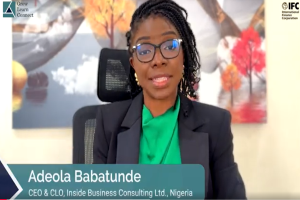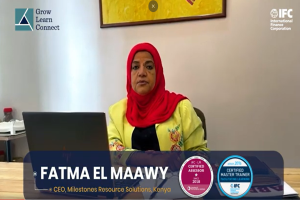Building A Coaching Culture
According to the 2020 ICF Global Coaching Study, coaching is mainly deployed in organizations via managers and leaders who use coaching skills; however, there exists a large generational disparity in its use in the workplace. In the Middle East and Africa, Generation X (born 1965–1981) account for 64% of managers and leaders who use coaching, in comparison to their millennial (born 1982–1996) and baby boomer (born 1946–1964) counterparts who account for 22% and 14%, respectively. Considering the reality of the multigenerational workforce, it is important that these gaps be closed and individuals be equipped with the right coaching skills regardless of age, experience, or generation group, and this begins by first developing a coaching mindset both within the workforce and the management.
The first step to building a coaching culture is by developing a coaching mindset
A coaching mindset begins by first acknowledging that employees are whole and capable, and possess the inherent potential required for them to contribute significantly to the organization. It is a sincere belief in the fact that company’s employees are its greatest asset, and that value must thus flow outward from the employee. In addition to being the foundation for building a coaching culture, this iterates the importance of first hiring the right talents.
Secondly, a coaching mindset is also one that is open, curious, and flexible. It is letting go of the status quo and the ‘this is how we’ve always done it’ mentality and creating an environment where employees can try new approaches and implement new ideas. It is a shift from a command-and-control management style to a more people-centered approach which has been shown to foster creativity, innovation, intrinsic motivation, and employee empowerment.
It is no news that employees no longer want to work at organizations where they simply must do as they are told, have no input on their role or the direction of the company. Command and control may have worked in the past, but as the workplace terrain changes, the new generation of workers want to be involved; they want to participate in the process of making decisions. Engaging and empowering these next-generation contributors is far more effective than telling them what to do and how to do it. Thus, a practical way of effecting this is by shifting from a leadership style of telling to asking.
A third approach to developing a coaching mindset is via a continuous practice of self and social awareness. Self-awareness entails individuals gaining clarity of themselves, their strengths, weaknesses, and values, whilst social awareness focuses on recognizing and understanding the feelings, emotions, and diversity of others. Creating an environment that promotes self-awareness guides employees towards a greater sense of identity, self-worth, and confidence, as they are able to function from a familiar place of strength. In addition, social awareness helps leaders to better manage their teams as they are able to leverage on the diversity and uniqueness of each team member in achieving their goals. When harnessed effectively, the use of self-evaluation and peer feedback tools, alongside formal personality tests can be a powerful way to develop awareness.
Time and time again, organizations with strong coaching cultures prove to be high-performing when benchmarked across multiple measures of business performance. The value of a strong coaching culture is undeniable, and it is no surprise that 83% of organizations plan to expand the scope of their coaching interventions within the next 3 years.
Beyond the incorporation of coaching tools and practices, however, organizations must first work to develop a coaching mindset amongst their workforce, especially amongst managers and leaders. It is only upon this foundation that an effective and sustainable coaching culture can be built.
What steps will you take towards developing a coaching mindset in your organization this week?
_______________________________________________________________________________________________________
For more information on this topic or to inquire about becoming a certified coach, please visit https://ezcoaching.org/programs/pccp or +234 813 089 8773





